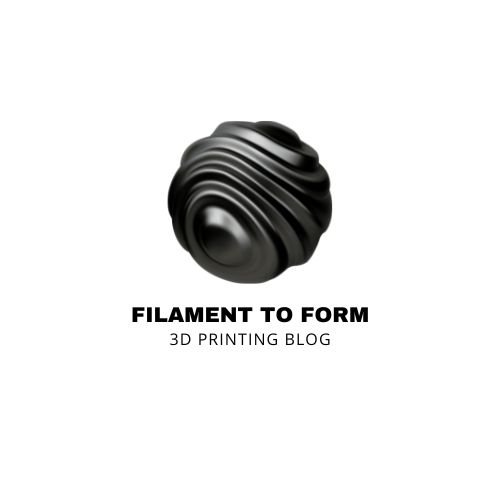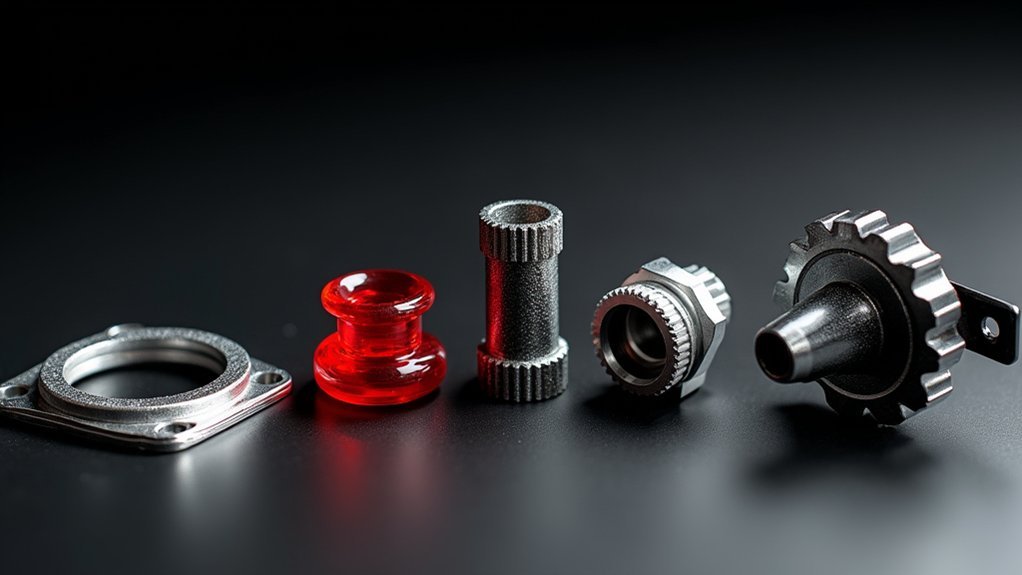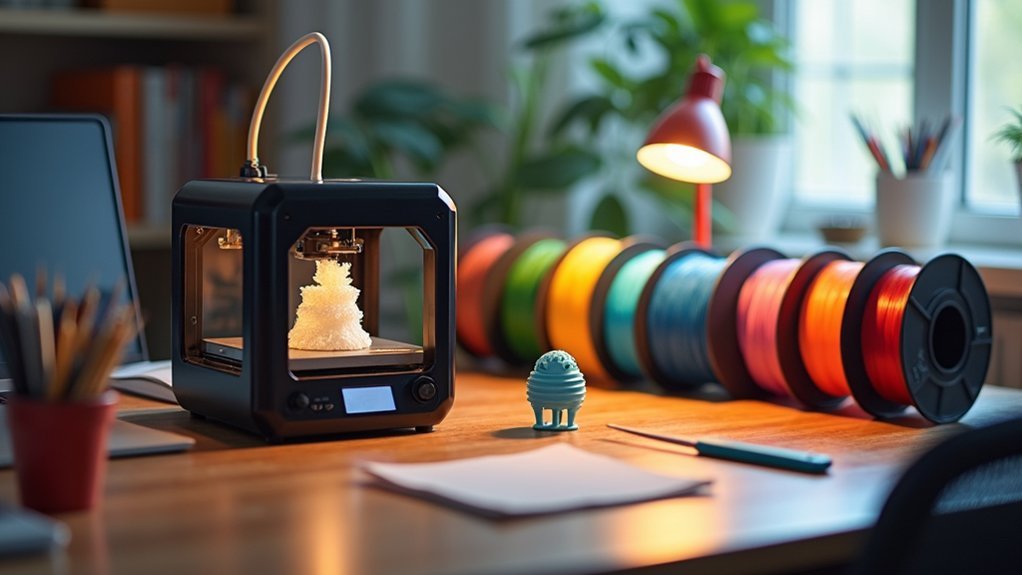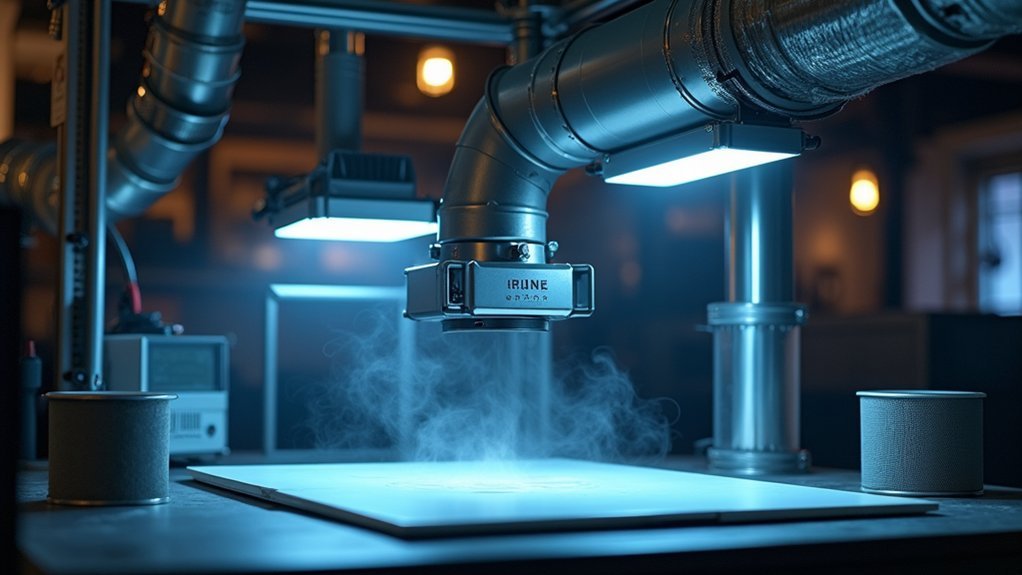You’re probably tired of automotive parts that crack under pressure or fail when temperatures soar. While traditional manufacturing methods have dominated the industry for decades, 3D printing has quietly revolutionized how we approach automotive component production. The right printing solutions can deliver parts that withstand extreme conditions, reduce weight, and cut costs dramatically. However, not all 3D printing approaches work equally well for automotive applications, and choosing the wrong solution could leave you worse off than before.
Multi-Purpose Pro Grade 3D Printer Accessories Kit with Tool Box
When you’re producing automotive parts through 3D printing, precision finishing separates professional-grade components from amateur attempts. This 88-piece toolkit delivers the exact tools you’ll need for professional post-processing work. You’ll get precision cutting pliers, an electric polishing machine, various sanding heads, and specialized 3D printer nozzle cleaning needles—all crafted from high-quality carbon steel and corrosion-resistant materials. The portable toolbox keeps everything organized while you work on critical automotive components. With rigorous testing by experienced engineers, these tools handle the demanding precision requirements that automotive applications demand without compromising quality or durability.
Best For: 3D printing enthusiasts, automotive part manufacturers, and DIY hobbyists who need professional-grade tools for precision post-processing and finishing work on printed components.
Pros:
- Comprehensive 88-piece toolkit includes specialized tools like electric polishing machine and 3D printer nozzle cleaning needles for complete post-processing workflow
- High-quality carbon steel construction with corrosion-resistant materials ensures durability and longevity for demanding automotive applications
- Portable organized toolbox design allows for easy storage and quick access to tools during complex projects
Cons:
- At 1.98 pounds, the toolkit may be heavy for users who need maximum portability during travel or fieldwork
- Electric polishing machine component may require power source access, limiting use in remote locations without electricity
- With 88 pieces, beginners might find the extensive tool selection overwhelming when starting simple 3D printing projects
Economy 3D Printer Tool Kit for Print Removal & Maintenance
The Economy 3D Printer Tool Kit stands out as the ideal choice for automotive enthusiasts and professionals who need reliable, cost-effective tools for removing and maintaining 3D-printed car parts without breaking the budget. You’ll get hobby-grade tools selected for function and value, including a custom-designed, ultra-thin removal tool that won’t damage delicate automotive components. The cleaning tools help you achieve professional-grade finishes on dashboard pieces, brackets, and custom parts. Everything comes in a convenient zipper bag that’s perfect for garage workshops or mobile repair work. This kit simplifies your cleaning and finishing process while keeping costs down for economy-minded automotive makers.
Best For: Automotive enthusiasts and professionals who need reliable, cost-effective tools for removing and maintaining 3D-printed car parts without breaking the budget.
Pros:
- Custom-designed, ultra-thin removal tool prevents damage to delicate automotive components
- Cleaning tools deliver professional-grade finishes on dashboard pieces, brackets, and custom parts
- Convenient zipper bag makes it perfect for garage workshops or mobile repair work
Cons:
- Hobby-grade quality may not withstand heavy professional automotive use
- Limited tool selection compared to higher-grade specialized automotive tool kits
- May require additional tools for complex automotive 3D printing projects
400Pcs Brass Knurled Threaded Embedment Nuts Assortment Kit
Automotive enthusiasts and professional mechanics who need reliable threaded connections in 3D printed parts will find exceptional value in this 400-piece brass knurled threaded embedment nuts assortment kit. You’ll get six essential sizes (M2-M6) with superior clamping strength that outperforms straight threaded inserts. The brass construction offers excellent thermal conductivity and anti-oxidation properties vital for automotive applications. Installation’s straightforward—heat with a soldering iron, insert flush into appropriately-sized holes. You’ll appreciate the organized storage box and included tweezers for precision placement. At $7.89, this kit provides everything needed for reinforcing automotive plastic housings, hinges, and electrical components in your 3D printed projects.
Best For: Automotive enthusiasts, professional mechanics, and 3D printing hobbyists who need reliable threaded connections in plastic parts and require a comprehensive assortment of brass embedment nuts for reinforcing printed components.
Pros:
- Superior clamping strength and torque resistance compared to straight threaded inserts, with knurled design providing secure hold in 3D printed materials
- Comprehensive kit includes six essential sizes (M2-M6) with organized storage box and precision tweezers, offering excellent value at $7.89
- High-quality brass construction provides excellent thermal conductivity and anti-oxidation properties ideal for automotive and electrical applications
Cons:
- Lacks suggested hole size guidelines for beginners, requiring experimentation to determine optimal fit for different applications
- Installation requires additional equipment (soldering iron) and careful temperature control to avoid damaging printed parts
- Limited to specific 3D printing applications and may not be suitable for injection molded parts without proper design considerations
3D Printer Part Print Board for ERCF 2.0 with TMC2209 Driver
Car enthusiasts and professional modifiers who demand precision multicolor lighting integration will find the 3D Printer Part Print Board for ERCF 2.0 with TMC2209 Driver an essential upgrade for their automotive projects. You’ll appreciate the CANBUS interface that seamlessly connects to your vehicle’s existing systems for headlights, taillights, and interior lighting applications. The compact 15x10x4 cm metal construction guarantees durability while maintaining compatibility across multiple car models. You can easily install this multicolor mainboard without extensive modifications. Whether you’re enhancing private cars or business vehicles, this board delivers the stability and performance lighting enthusiasts require for professional-grade automotive customization projects.
Best For: Car enthusiasts and professional modifiers who need precise multicolor lighting integration with CANBUS compatibility for headlights, taillights, and interior lighting applications across multiple vehicle types.
Pros:
- CANBUS interface provides seamless integration with existing vehicle electrical systems
- Compact metal construction (15x10x4 cm) ensures durability and compatibility across multiple car models
- Easy installation process without requiring extensive vehicle modifications
Cons:
- Product description contains confusing mixed information about 3D printing and automotive applications
- Limited warranty information with support directed only to manufacturer’s website
- Lower sales ranking (#692,269) suggests limited market validation and customer feedback
HNYYZL 150Pcs 3D Printing Brass Nuts – Heat Set Threaded Inserts
Professional mechanics and automotive enthusiasts who need reliable threaded connections in plastic components will find the HNYYZL 150Pcs 3D Printing Brass Nuts an invaluable addition to their toolkit. You’ll receive 150 high-quality brass inserts in three essential sizes: M3x4x5, M4x6x6, and M5x6x7. Installation’s straightforward—just use a soldering iron to heat-set these inserts into your 3D printed automotive parts or existing plastic shells. The corrosion-resistant brass construction guarantees durability in outdoor conditions, while the secure threading prevents stripping or slipping. You’ll appreciate the cost-effectiveness of this thorough kit for dashboard components, trim pieces, and custom automotive modifications.
Best For: Professional mechanics, automotive enthusiasts, and DIY hobbyists who need reliable threaded connections in 3D printed parts and plastic components for automotive repairs and modifications.
Pros:
- Comprehensive kit with 150 pieces in three essential sizes (M3x4x5, M4x6x6, M5x6x7) provides excellent value and variety for different project needs
- Easy heat-set installation using just a soldering iron creates secure, permanent threaded connections without specialized tools
- Corrosion-resistant brass construction ensures durability and reliable performance in outdoor and automotive applications
Cons:
- Requires a soldering iron for installation, which may not be readily available to all users
- Heat-setting process could potentially damage sensitive plastic materials if not done carefully
- Limited to three specific sizes, which may not cover all threading requirements for specialized projects
Factors to Consider When Choosing 3D Printing Solutions for Automotive Parts
When you’re selecting 3D printing solutions for automotive applications, you’ll need to assess several critical factors that directly impact performance and reliability. Your material choices must meet specific durability requirements and temperature resistance standards while maintaining precise tolerances throughout the manufacturing process. You’ll also want to contemplate the post-processing tools required and how your printed components will integrate with fastening and assembly systems.
Material Durability Requirements
Because automotive environments subject components to extreme temperatures, chemical exposure, and mechanical stress, you’ll need materials that won’t compromise under these demanding conditions. You should prioritize high-quality materials like brass for threaded inserts, which offer excellent thermal conductivity and corrosion resistance essential for long-lasting performance. Components facing stress and environmental exposure require materials with anti-oxidation properties to maintain structural integrity over time. You’ll find knurled threaded inserts particularly valuable for enhancing clamping strength and torque resistance in 3D printed automotive parts. Select materials that withstand high temperatures and mechanical loads, as automotive applications often encounter extreme conditions leading to failure with inadequate materials. Proper installation techniques, including heat embedment for threaded inserts, guarantee reliable connections.
Temperature Resistance Standards
Thermal stability forms the backbone of reliable automotive 3D printing applications, where components must endure temperature swings from -40°C to 120°C or beyond without compromising performance. You’ll need materials that comply with ASTM and ISO temperature resistance standards to guarantee your printed parts meet industry requirements.
High-quality thermoplastics maintain their mechanical properties at elevated temperatures, preventing thermal degradation that could lead to catastrophic failures. You should verify your chosen material’s glass shift temperature (Tg) and melting point through rigorous testing protocols.
Don’t overlook thermal stability testing—it’s essential for determining long-term performance under harsh automotive conditions. Materials that haven’t undergone proper temperature resistance validation can fail unexpectedly, compromising both safety and reliability in critical automotive applications.
Precision and Tolerances
Precision requirements in automotive 3D printing demand tolerances as tight as ±0.1 mm, where even minor deviations can prevent proper assembly or cause component failure. You’ll need to select advanced printing technologies like SLA or SLS over standard FDM printers to achieve the fine resolutions required for intricate automotive components.
Your choice of materials notably impacts precision outcomes. High-quality brass threaded inserts reduce connection slippage and failures compared to plastic alternatives. You must understand each material’s thermal and mechanical properties, as these directly affect dimensional stability under varying operating conditions.
Regular calibration and maintenance of your 3D printer are non-negotiable. Even small discrepancies in printer settings can create cascading issues during final assembly, making consistent equipment performance essential for automotive-grade precision manufacturing.
Post-Processing Tool Needs
Five critical categories of post-processing tools will determine whether your 3D printed automotive parts meet industry standards or fall short of professional requirements.
You’ll need precision cutting tools and polishing machines as your foundation, coupled with various sanding heads to handle different material complexities in automotive designs. Don’t overlook effective cleaning tools like brushes and scrapers – they’re essential for removing support structures and residues that could cause defects in final assembly.
Invest in threaded inserts, particularly brass nuts, to reinforce connections and provide necessary clamping strength and torque resistance for vehicle durability. Choose high-quality, corrosion-resistant materials for your post-processing tools to greatly improve longevity and reliability, especially for parts facing outdoor or high-stress environments.
Fastening and Assembly
Success in automotive 3D printing hinges on selecting fastening solutions that can withstand the demanding forces and environmental conditions vehicles encounter daily. You’ll need knurled threaded inserts to greatly enhance clamping strength and torque resistance in your printed components. Heat set threaded inserts provide the most secure embedment, creating robust connections perfect for high-stress applications.
When designing installation holes, you must verify sufficient depth and tolerance for your specific insert sizes to achieve peak performance. Brass threaded inserts offer superior corrosion resistance and durability, making them ideal for automotive environments. Proper installation prevents common issues like slipping or stripping, confirming your 3D printed automotive parts maintain reliability and longevity throughout their service life.
Cost-Effectiveness Analysis
When evaluating 3D printing solutions for automotive applications, you’ll find that cost-effectiveness extends far beyond initial material expenses. Smart component selection makes a significant difference – brass threaded inserts in 400-piece kits for around $7.89 deliver durability and secure connections without breaking your budget. Heat set threaded inserts reduce labor costs by embedding directly into printed parts, eliminating additional tooling requirements.
You’ll achieve substantial savings through 3D printing’s ability to create complex geometries and lightweight components, reducing both material waste and post-processing expenses. While higher-grade printing kits require larger upfront investments, they’ll deliver long-term value through improved efficiency, superior print quality, and fewer production failures. Multi-purpose tool kits further streamline your manufacturing processes while controlling operational costs.
Frequently Asked Questions
What Automotive Parts Are Legally Safe to 3D Print and Use?
You can legally 3D print non-safety-critical parts like interior trim, brackets, custom knobs, phone mounts, and decorative elements. Don’t print brake components, steering parts, or structural elements that affect vehicle safety systems.
How Long Do 3D Printed Automotive Parts Typically Last Under Stress?
You’ll find 3D printed automotive parts last anywhere from weeks to years under stress, depending on material choice, print quality, and load conditions. High-performance polymers typically outperform standard plastics considerably.
Which Materials Provide the Best Heat Resistance for Engine Components?
You’ll want PEEK or PEI for extreme heat resistance up to 500°F. Carbon fiber reinforced nylon works well for moderate temperatures. Ultem’s your best bet for combining heat resistance with chemical stability in engine applications.
Can 3D Printed Parts Void My Vehicle’s Warranty Coverage?
You’ll need to check your specific warranty terms carefully. Most warranties won’t void entirely, but manufacturers might deny claims if 3D printed parts directly caused the failure you’re experiencing.
What’s the Average Cost Savings Compared to OEM Replacement Parts?
You’ll typically save 60-80% compared to OEM parts when 3D printing automotive components. Simple brackets might cost $2-5 versus $50-100 OEM prices, while complex parts can save you hundreds of dollars per replacement.





Leave a Reply